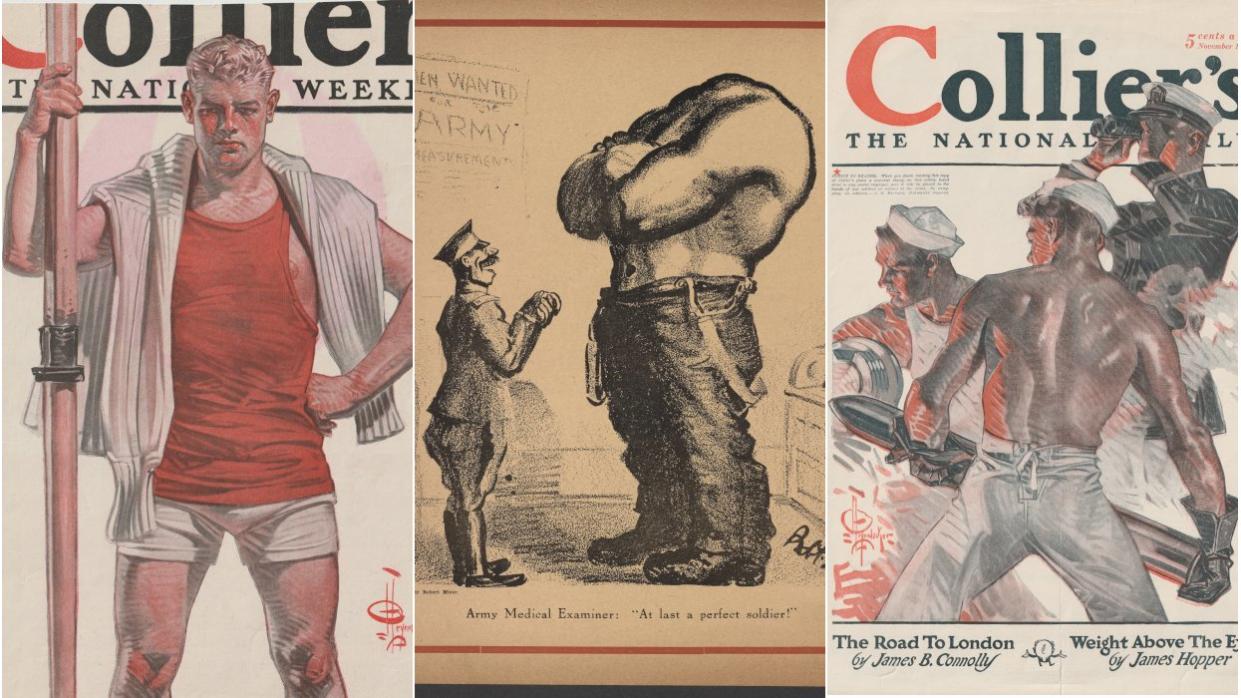11 Homoerotic Ads, Covers From 20th Century Gay Artist J.C. Leyendecker

- Oops!Something went wrong.Please try again later.
- Oops!Something went wrong.Please try again later.
J.C. Leyendecker used male beauty to sell magazines and household products to Americans.

Above, Easter - Man in the Mirror
Decades before Tom of Finland sketched idealized drawings of men in lust, illustrator J.C. Leyendecker turned his appreciation for the male form into cash cows for corporations, using muscled, half-dressed men to sell soap, magazines, and detachable collars. Viewed from a 21st-century lens, Leyendecker’s covers for the Saturday Evening Post and Collier’s, and advertising images for men’s clothing, don’t have a gay subtext; they’re just gay. But while the German-born, Chicago-raised Leyendecker practically shouts of his love for men in his art — many of his works were modeled on his longtime partner, Charles Beach — the homoeroticism was subtly absorbed by American consumers. Subversively, Leyendecker’s illustrations, appearing on billboards, store windows, and mass transit, helped shape the aesthetic of the early 20th century, before the culture gravitated to the more antiseptic images of Norman Rockwell, who succeeded Leyendecker as the Saturday Evening Post’s premiere illustrator. Leyendecker’s lasting influence will be explored in “Under Cover: J.C. Leyendecker and American Masculinity,” an exhibition at the New York Historical Society on view from May 5 to August 13 and featuring 19 of the artist’s original oil paintings, along with his editorial work, magazine covers, and drawings. “J.C. Leyendecker was an amazingly talented artist whose illustrations have come to embody the look and feel of the first half of the century while simultaneously demonstrating how fluidity in gender expression and queer representation were actually quite common at the time, contrary to current assertions that they are unique to our own moment,” Donald Albrecht, Historical Society guest curator, said in a statement. “Not only did his work exemplify the zeitgeist, but it depicts a deeply nuanced view of sexuality and advertising that broadens our understanding of American culture.”
Discover more about Leyendecker and the exhibit at nyhistory.org and see more of his work on the following pages.
Men With Golf Clubs

Ivory Soap ad

Arrow Shirts ad

In the Yale Boathouse

Cool Summer Comfort

1907 Saturday Evening Post cover

Thanksgiving

Army Medical Examiner by artist Robert Minor, part of the exhibit to show a contrast with Leyendecker's work

1916 Collier's cover

1917 Collier's cover


